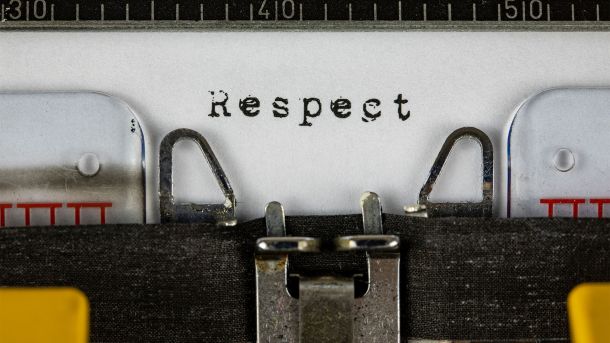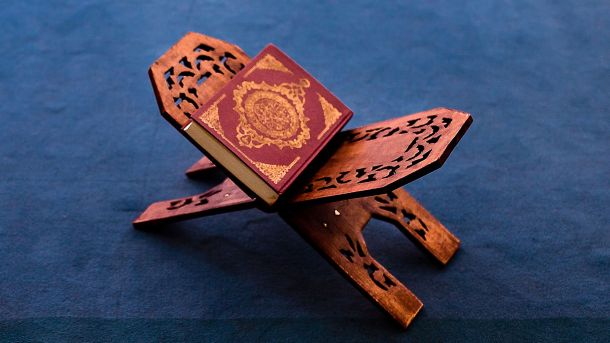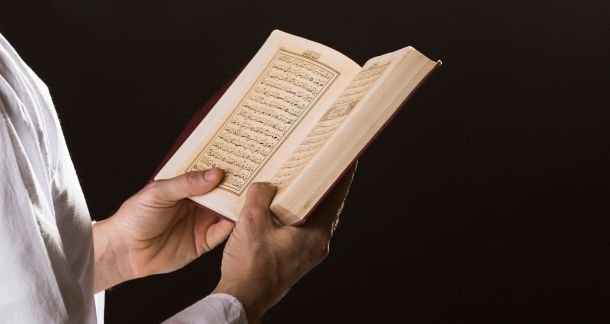News Archive
Jun 13, 2007
A Few Notes on the Evils of Innovation
The belief of ‘bidʿah ḥasanah’, i.e. a good bidʿah, meaning that a scholar can introduce a new action of worship in Islām which can be considered to be good as long it does not contradict any of the principles of Islām. So we resort to the sayings of the Companions and the Imāms to illuminate the road ahead of these people.
The Dīn is complete:
Allāh says, “this day have I perfected your religion for you, completed my favour upon you, and have chosen for you Islām as your religion” (5:4)
This verse embodies a clear statement that the religion has been completed and so has no need of addition…
Jun 13, 2007
A Clarification of Doubts Regarding Innovation
His saying, ‘and beware of the newly invented matters, and every bidʿah is a misguidance’ contains a warning to the ummah from following the newly invented innovations, and he stressed this by saying, ‘and every innovation is a misguidance’. And the meaning of bidʿah is everything that is newly invented that has no basis in the Sharīʿah that would prove it.
Al-ʿAllāmah Ṣāliḥ ibn Fawzān al-Fawzān
Jun 13, 2007
Takfīr of the Entire Ummah: The Legacy of Sayyid Quṭb
So when there is so much misguidance, differing and disbelief and there is no escape from the continuance of this Muslim group.
Shaykh Ṣāliḥ ibn Fawzān al-Fawzān[Q.1]: ‘Muḥammad Qutb says in his book, Hawla Tatbeeqish-Sharīʿah concerning the meaning of Lā ilāha illā-Allāh (There is no deity worthy of worship besides Allāh), that it means, ‘There is no deity besides Allāh, nor is there any ruler besides Allāh.’2 So is this tafsīr (exegesis) correct?’
[A.1]: “Allāh the Glorified and Exalted has explained the meaning of Lā ilāha illā-Allāh in His Book and Messenger ﷺ has clarified it. Al…
Jun 13, 2007
The Conclusive Ruling upon Jamāʿat al-Tablīgh
So in this book, he collected and explained the reality of this group from its own books and from trustworthy witnesses from its own members who attained special positions in their program and their followers, and refuted them.
Al-ʿAllāmah Ṣāliḥ ibn Fawzān al-Fawzān[Q]: The Jamāʿat al-Tablīgh says, ‘We wish to traverse the methodology of Ahl al-Sunnah wal-Jamāʿah.’ However, some of them may have errors. So they say, ‘How can you make a judgment upon us and warn against us?’
[A]: Those who traveled with the Jamāʿat al-Tablīgh and studied them have written against them.&…
Jun 13, 2007
The True Meaning of Fiqh al-Wāqiʿ
The meaning of that is the fiqh of the Religion by knowing the rulings of the Sharīʿah. This is what is required, and this is what is obligatory upon the Muslims to give attention to and know.
Al-ʿAllāmah Ṣāliḥ ibn Fawzān al-Fawzān[Q]: ‘I need clarification, what is the intended meaning behind ‘Fiqh-al-Wāqiʿ’, (understanding the current state of affairs) because this term is often used. I wish to know what it means linguistically, not in the Sharīʿah sense.’
[A]: “The required an necessary fiqh (understanding) is the fiqh of the Book and the&nbs…
Jun 13, 2007
Respect for the Scholars
If trust in the Scholars is neglected, then to whom will the Muslims refer to in a condition of difficulty, and to explain the rules of the Sharīʿah?
Shaykh Ṣāliḥ ibn Fawzān al-Fawzān[Q]: Is it from unity to have disdain for the Committee of Major Scholars, and to charge them with hypocrisy and being paid workers?
[A]: It is obligatory to respect the Scholars of the Muslims because they are inheritors of the Prophets. So having disdain for them refers to having disdain for their position, their inheritance from the Prophet ﷺ, and disdain for the knowledge that they carry. From disdain for t…
Jun 13, 2007
Profound Words Concerning Groups and Parties
The innovation is more severe because innovation is worse than disobedience, and innovation is more beloved to Shayṭān than disobedience because the disobedient one may repent.
Al-ʿAllāmah Ṣāliḥ ibn Fawzān al-Fawzān[Q]: We hear about what are called Islamic Jamaa’aat in this age in various parts of the world. So what is the basis of this term? Is it permissible to go along with then and assist them if they do not have an innovation?
[A]: The Messenger ﷺ informed and explained to how we must interact. He did not leave anything that brings his Ummah closer to…
Jun 13, 2007
Soundness of Manhaj
So the soundness of manhaj – or lack thereof – determines a person’s entry into Paradise or the Fire.
[Q]: Is entry into Paradise or the Fire dependent upon the soundness of manhaj (methodology)?2
[A]: Yes, if the manhaj is sound, then the person will be from amongst the people of Paradise; since he will be upon the manhaj of the Messenger ﷺ and manhaj of the Salaf al-Ṣāliḥ. He will be from amongst the people of Paradise by the permission of Allāh. If he traverses a misguided methodology, then he will be an innovator in the Fire.”3 So the soundness of manhaj – or lack thereof – d…
Jun 13, 2007
Virtues of Reciting Particular Parts of the Qurʾān
Abū Umāmah (raḍī Allāhu ʿanhu) reported that the Messenger of Allāh (ﷺ) said: “Whoever recites Āyat al-Kursī following every obligatory prayer, nothing prevents him from entering Paradise except dying.”
Ibn Masʿūd (raḍī Allāhu ʿanhu) reported that the Messenger of Allāh (ﷺ) said: “Whoever recites the last two verses of Sūrah al-Baqarah in a night, they will suffice him.”
Anas (raḍī Allāhu ʿanhu) reported that the Messenger of Allāh (ﷺ) said: “Whoever recited: (Qul Yā ayyuh al-Kāfirūn) it will be equal to a quarter of the Qurʾān for him, and whoever recites (Qul hu Allāhu Aḥad) it will be eq…








